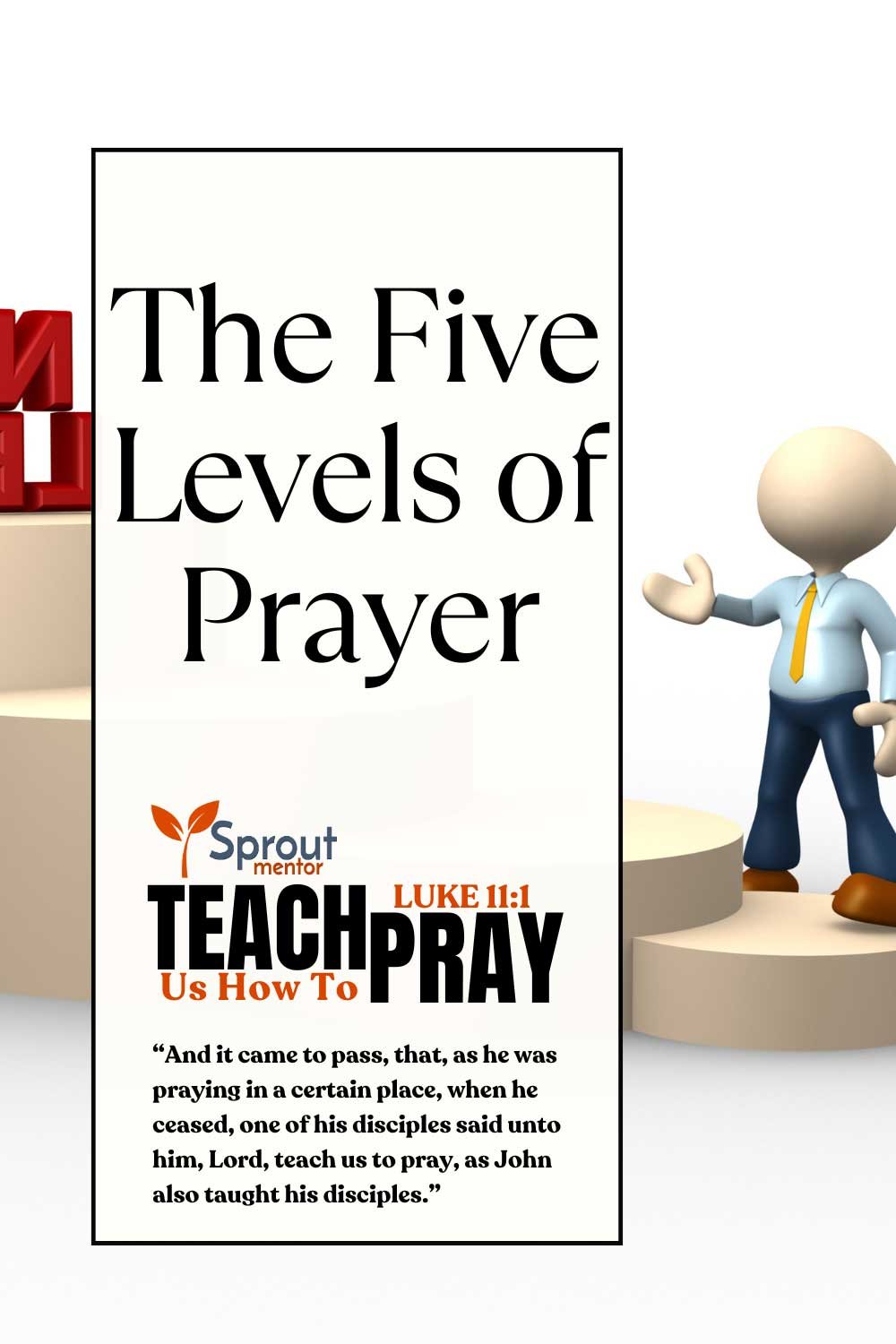5 Ways Sin Hinders Prayer (Psalm 66:18)

Share This Blog Post On:
Facing unseen battles in your daily life? We equip you with biblical truth and practical strategies to stand firm against spiritual opposition. Join us for insights on spiritual warfare and strength for your faith journey. Click here to armor up and walk in victory, one truth at a time!
“If I regard iniquity in my heart, the Lord will not hear me” (Psalm 66:18, KJV)
This verse underscores a powerful truth—sin is a major hindrance to answered prayer. The Bible clearly teaches that sin separates us from God (Isaiah 59:2). God is holy, and when we allow sin to take root in our hearts, it creates a barrier between us and Him. Sin leaves a stain that makes us spiritually unacceptable before a righteous God.
It is also recorded in the books of atonement, exposing us to God’s righteous judgment. Because of this, our prayers can be met with judgment rather than mercy. To fully understand how sin affects our communication with God, we must explore five key ways in which sin hinders prayer.
One, Hardening of the Heart
Sin has a progressive nature—it starts subtly but, if left unchecked, it hardens the heart. Psalm 19:12-13 describes two types of sin: “Who can understand his errors? Cleanse thou me from secret faults. Keep back thy servant also from presumptuous sins; let them not have dominion over me: then shall I be upright, and I shall be innocent from the great transgression” (KJV).
Hidden faults are unintentional, accidental sins that often go unnoticed. In contrast, presumptuous sins are deliberate, willful acts of disobedience. These sins dominate a person’s life and lead to a hardened heart, making it difficult to repent and seek God sincerely. David prayed earnestly for protection against such sins, recognizing their power to enslave and sever his connection with God.
A hardened heart resists correction, refuses to submit to God’s will, and eventually stops seeking God in prayer altogether. Pharaoh is a prime example—despite witnessing God’s mighty acts, he continually hardened his heart (Exodus 8:15, 32). When a heart is hardened, prayer becomes ineffective because it is not offered in humility or sincerity.
Two, Separation from God
Sin erects a wall between us and God. Isaiah 59:2 states, “But your iniquities have separated between you and your God, and your sins have hid his face from you, that he will not hear.” The natural consequence of sin is spiritual death (Romans 6:23), which is the ultimate separation from God.
God’s justice demands atonement for sin. Under the Old Testament law, both intentional and unintentional sins required atonement (Leviticus 4:2-3; Numbers 15:27-28). Unconfessed and un-repented sin leads to spiritual alienation, making our prayers ineffective. In Revelation 3:16, Jesus warns that lukewarm believers will be spewed out of His mouth—a metaphor for rejection due to spiritual compromise.
In today’s context, many people feel distant from God and struggle with unanswered prayers. Often, the root cause is unconfessed sin. Regular repentance and sincere confession (1 John 1:9) restore our relationship with God and open the doors for effective prayer.
Three, Guilt and Self-Condemnation
God created man as a tripartite being—body, soul, and spirit (1 Thessalonians 5:23). Within the spirit, God placed a conscience, which serves as a moral compass. Sin damages the conscience in two ways: it either triggers guilt or sears the conscience, rendering it insensitive (1 Timothy 4:2).
Guilt creates a sense of unworthiness, making it difficult to approach God confidently in prayer. Hebrews 10:22 encourages believers to “draw near with a true heart in full assurance of faith, having our hearts sprinkled from an evil conscience, and our bodies washed with pure water.” When guilt dominates, prayer becomes a struggle because the believer feels condemned rather than forgiven.
Furthermore, guilt often leads to bitterness and unforgiveness. Jesus taught that harboring unforgiveness hinders prayer (Mark 11:25-26). A heart weighed down by resentment cannot fully commune with God. Additionally, unrepented sin fosters spiritual complacency, making a person indifferent to prayer and godly living.
Four, Pride and Arrogance
Pride is another significant hindrance to prayer. Proverbs 16:18 warns, “Pride goeth before destruction, and an haughty spirit before a fall.” Sin breeds pride, causing individuals to become self-reliant rather than dependent on God. A proud heart does not seek God earnestly because it assumes self-sufficiency.
Pride also leads to a lack of faith. James 1:6-7 instructs that prayers must be offered in faith, without doubting. A person who is full of pride often questions God’s power or faithfulness, which weakens their prayers.
Additionally, pride results in neglecting prayer. When individuals feel capable of handling life on their own, they see no need to seek God. This is the same deception Satan used on Eve in the Garden of Eden—“Ye shall be as gods, knowing good and evil” (Genesis 3:5). The underlying message was independence from God, which ultimately led to the fall of mankind.
Moreover, pride corrupts motives in prayer. James 4:3 warns, “Ye ask, and receive not, because ye ask amiss, that ye may consume it upon your lusts.” When prayers are driven by selfish desires rather than alignment with God’s will, they go unanswered.
Five, Disobedience
Sin fosters disobedience, leading to a careless approach toward God’s commands. Presumptuous sins arise when individuals knowingly disregard God’s Word. Numbers 15:30-31 states, “But the soul that doeth ought presumptuously…the same reproacheth the Lord; and that soul shall be cut off from among his people.”
When a person consistently ignores God’s correction, their heart becomes calloused. Over time, they develop an attitude of spiritual arrogance, thinking they can live however they please without consequences. Such a mindset suppresses the conscience, leading to rebellion against God’s truth.
King Saul is an example of how disobedience hinders prayer. When God commanded him to utterly destroy the Amalekites, he partially obeyed (1 Samuel 15:9). As a result, God rejected him as king. Saul later sought God’s guidance, but the Lord refused to answer him (1 Samuel 28:6). Persistent disobedience leads to divine silence, making prayer ineffective.
Modern believers often struggle with answered prayers because of hidden disobedience. This could be in the form of unrepented sins, neglected spiritual disciplines, or knowingly engaging in activities contrary to God’s will. Jesus said, “If ye love me, keep my commandments” (John 14:15). Obedience is key to an open line of communication with God.
In conclusion, true Christians are repentant sinners, not presumptuous sinners. The difference lies in the attitude towards sin—one seeks forgiveness, while the other embraces rebellion. Hebrews 12:29 reminds us that “our God is a consuming fire.” When sin is unconfessed and repentance is neglected, it invites God’s judgment rather than His mercy.
Therefore, if you find your prayers hindered, examine your heart. Confess and forsake any known sin (Proverbs 28:13). Seek God’s forgiveness with sincerity, and He will restore the connection. As 1 John 1:9 assures us, “If we confess our sins, he is faithful and just to forgive us our sins, and to cleanse us from all unrighteousness.” May God help us to walk in obedience, humility, and faith, ensuring that nothing hinders our communion with the Lord.

Continue Reading More On Spiritual Warfare In The Guides Below:
|


![5-WAYS-Unconfessed-SIN-Can-RUIN-Your-Life-[2-Samuel-126-14]](https://sproutmentor.com/wp-content/uploads/2024/06/5-WAYS-Unconfessed-SIN-Can-RUIN-Your-Life-2-Samuel-126-14.jpg)

![5-Steps-to-DITCH-Sin-&-Get-CLOSER-to-God-[Luke-1517-32]](https://sproutmentor.com/wp-content/uploads/2024/05/5-Steps-to-DITCH-Sin-Get-CLOSER-to-God-Luke-1517-32.jpg)


